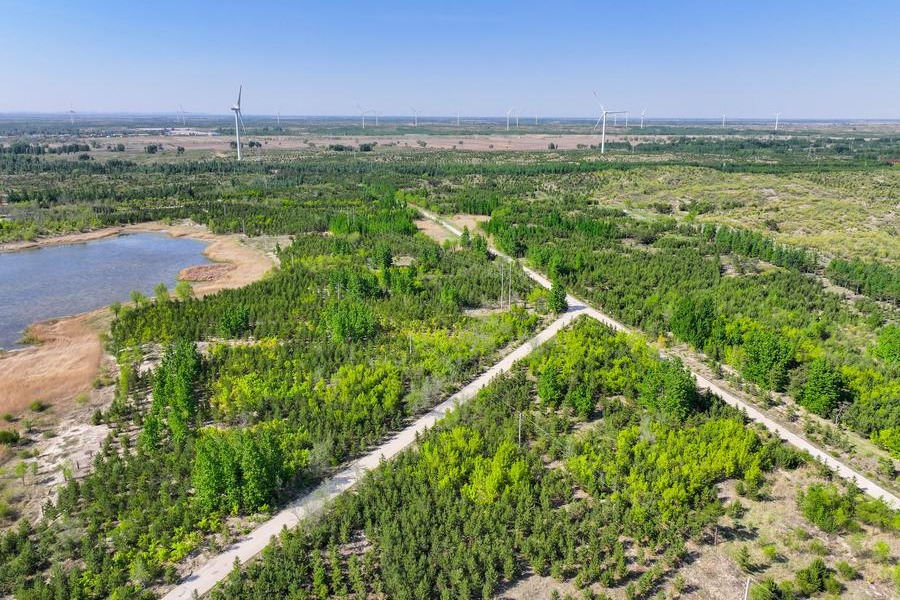Resilient food systems benefit farmers


With the release of its No 1 central document for 2023, China and its partners stand at a turning point for moving into recovery and rebuilding.
In recent years we have witnessed the negative impact of the COVID-19 pandemic and continuously evolving geopolitics worldwide. Most of the problems were borne by poor people, especially in rural areas, due to their exposure to income losses, health threats and disruption of services during lockdowns. It is a stark reminder of how vulnerable the rural poor and other marginalized groups are.
In China, the pandemic also amplified the suffering of disadvantaged groups including small-scale rural households. Meanwhile, limited arable and degraded land, and climate change accompanied by frequent natural hazards such as extreme heat waves and droughts, have threatened the rural poor, particularly those in northern and western China who rely heavily on agriculture as a major source of income.
China has developed a blueprint to further advance agricultural and rural development to feed its people, nearly 18 percent of the world's population. The launching of the Rural Vitalization Strategy in 2017 has catalyzed a number of policies and reforms in this regard. The importance of agriculture, rural areas and farmers have been reiterated in the 2018-22 Strategic Planning for Vitalization of Rural Areas, the 14th-Five Year Plan (2021-25), and the Rural Vitalization Promotion Law.
The implementation of this blueprint has yielded results and China has witnessed unparalleled economic growth. Indeed, in February 2021, President Xi Jinping officially announced the eradication of extreme poverty in China at the end of 2020, after four decades of sustained poverty reduction programmes.
Recognising the need to sustain the gains, in December 2022 President Xi stressed the need to advance rural vitalization across the board and accelerate the building of a strong agricultural base, toward building China into a great modern socialist country.
The International Fund for Agricultural Development — with a mandate to be at the forefront of poverty reduction, food security and inclusive rural development — has partnered with China for over 40 years in the area of agriculture and rural development. Six years ago, the joint efforts shifted to the realization of rural vitalization and a transformation of food systems. These will be China's key contributions to achieving the Sustainable Development Goals. There are, however, several areas that need us to devote more attention and investment.
First, China should continue addressing food security issues with more investment in small-scale farmer households by creating a mechanism to ensure that farmers have full access to agricultural inputs, innovations, and new technology. Empowering and engaging different stakeholders along the entire value chain will assist them to foster inclusive cooperatives and organizations to produce in larger scales and wield more power to deal in markets.
Second, the outflow of rural youth and talent has brought a dramatic change in rural livelihoods in China. While a decreasing share of rural households remain farming, many now must combine their way of living with other sources of income. Thus, more and more rural youths choose to work in agricultural related services while urban young people are working in labor-intensive manufacturing industries. China's rural areas have great potential to provide more employment opportunities to the younger generation. Providing them sufficient vocational training and incubation ground will generate young entrepreneurs dedicated to agricultural activities and agribusinesses.
Third, a large share of China's population still lives just above the poverty line. Many may face the risk of getting pushed back into poverty after the pandemic. Continuous emphasis should be given to them as a majority of them belong to disadvantaged groups such as women, youth and disabled in the rural areas. Adopting a more sensitive approach favouring these groups in the implementation of rural vitalization strategies will help them build decent livelihoods and benefit from healthier food systems.
China should also develop an overall rural vitalization program to benefit both the environment and the people. China should continuously complement high-speed development with high-quality growth and build up effective food systems which allow small-scale farmers and those who are vulnerable to be more resilient and able to bounce back quickly from either health, climate or economic shocks in the future.
The author is IFAD country director for China. The views don't necessarily represent those of China Daily.
If you have a specific expertise, or would like to share your thought about our stories, then send us your writings at opinion@chinadaily.com.cn, and comment@chinadaily.com.cn.


































